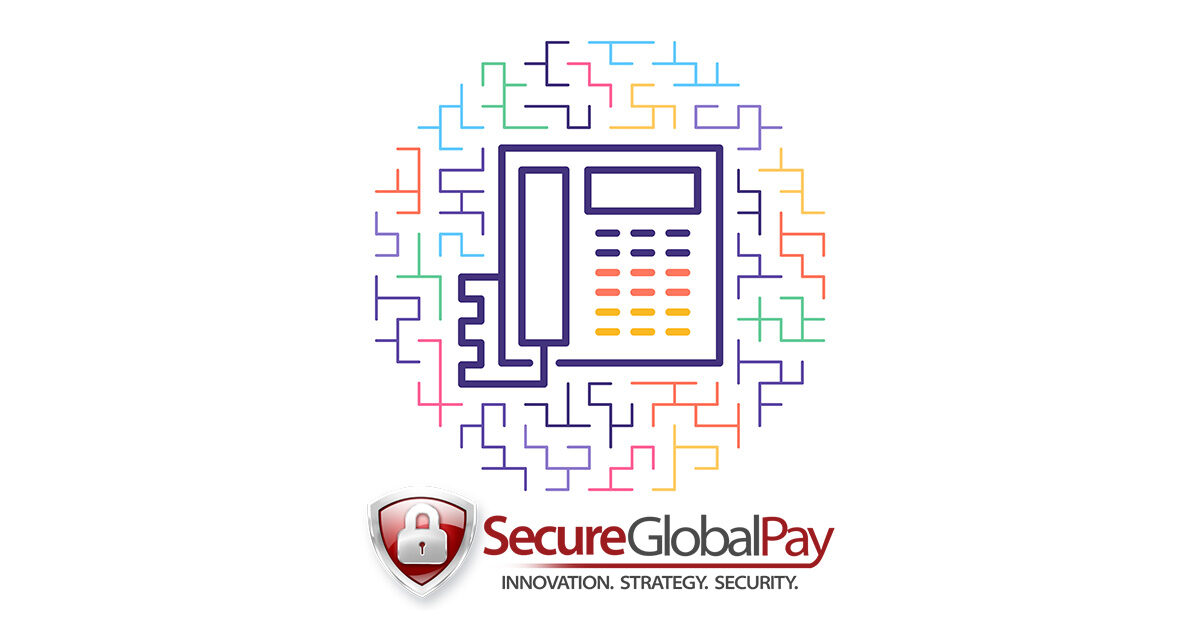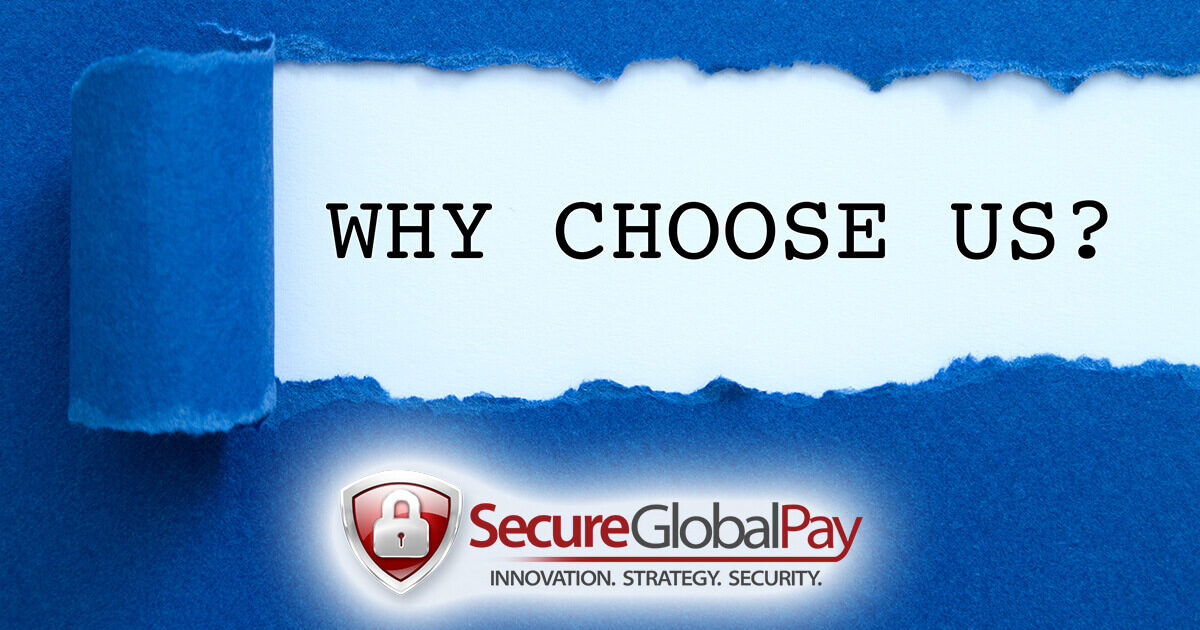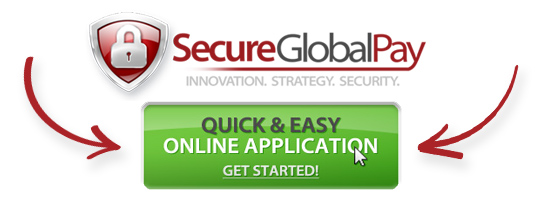
IVR Payment Gateway – Everything You Need to Know
According to a recent study, billing inquiries are the primary reason behind customer support calls in the banking and financial sectors. The second highest volume of support calls are made to internet service providers. In addition, almost a quarter of the calls to healthcare providers are related to billing issues. All these support-related channels rely primarily on an IVR payment gateway to accept credit and debit card payments for past-due fees. Sign up today for SecureGlobalPay’s IVR payment gateway and start accepting telecommunications payment services 24/7 for fees, bills, and donations via an automated system over the phone.
Support calls can significantly drain resources and reduce customer satisfaction when a proper payment processing solution is not in place. This is where an Interactive Voice Response (IVR) & IVR payment gateway come in handy. With an IVR payment gateway, bill pay customers can quickly access their account information and make payments without waiting for an agent.
In this guide, we will walk you through everything you need to know about the IVR payment gateway, its benefits, and which businesses should use them. We’ll also answer some frequently asked questions on the best payment gateway for SaaS and IVR solutions for accepting credit card payments. Let’s dive in!
What is an IVR Payment Gateway?
An IVR payment gateway or (Interactive Voice Response) payment gateway is a technology that allows customers to make payments over the phone using their credit or debit card details. This is done through an automated voice response system, which prompts customers to enter their card details and confirm the transaction securely. IVR payment systems have become increasingly popular as they offer businesses an efficient, secure, and cost-effective way of processing payments.

How Do the Best IVR Payment Systems Work?
IVR payment systems can be incorporated into your existing IVR or call center software and serve as an Interactive Voice Response platform component via an API. Upon connecting to the IVR, customers encounter a call menu that requests payment details such as account numbers, credit/debit card information, invoice numbers, or associated phone numbers.
Telecommunications payment services allow customers to provide this data by verbally responding over the phone or inputting the information using their phone keypads. When customers opt for the dial pad method, the system employs dual-tone-multi-frequency signaling (DTMF) to handle the transaction.
Conversely, if the customer verbally communicates their information, AI Natural Language Processing (NLP) and Voice Recognition interpret the speech and process the transaction with the payment provider based on pre-determined keywords and phrases.
With the help of CRM integrations, voice recognition, and saved account information, the IVR payment tool can also confirm the caller’s identity. Callers can transition from IVR-service payments to live customer service operators during the process.
Typically, the entire process takes no more than five minutes to complete.

Benefits of an IVR Payment Gateway
Implementing an IVR (Interactive Voice Response) with telecommunications payment services in today’s fast-paced business environment can provide numerous advantages for businesses and customers. We will explore the many benefits of using IVR payments, discussing how it can improve payment efficiency, save costs, and increase security.
Convenient Payment Option
An IVR gateway offers customers a convenient way to make payments using their phones. This ease of access helps reduce late payments, as customers can complete transactions at their convenience without the need to log onto a computer or visit a physical location.
Automated Payment Reminders
IVR payment systems can be programmed to send automated payment reminders to customers, which can help keep them informed about upcoming due dates and encourage timely payments.
Reduced Manual Processing
By automating the payment process, IVR payment systems can significantly reduce the need for manual processing of transactions. This reduction in labor can lead to substantial cost savings for businesses, particularly those with a high volume of transactions.
Streamlined Billing Processes
IVR payment systems can also help businesses streamline their billing processes with a merchant account for recurring billing. This increased efficiency can lead to further cost savings and reduced administrative workloads.
Lower Infrastructure Costs
Implementing IVR payments eliminates the need for additional infrastructure, such as payment terminals or specialized hardware. This reduction in infrastructure requirements can help businesses save on upfront costs and ongoing maintenance expenses.
Data Encryption
IVR payment gateways use advanced encryption technology to protect sensitive customer data during transactions. This high level of security helps to ensure that customer information remains confidential and reduces the risk of data breaches.
Fraud Prevention
By implementing additional security measures, such as unique verification codes or voice biometrics, IVR payment systems can help businesses prevent fraudulent transactions and reduce the risk of chargebacks.
Compliance with Industry Standards
Best IVR payment systems adhere to industry security standards, such as the Payment Card Industry Data Security Standard (PCI DSS), which helps businesses maintain compliance and safeguard customer data.
Adherence to Regulations
IVR payment gateways that comply with industry regulations, such as PCI DSS, help businesses meet the necessary security requirements and avoid potential penalties for non-compliance.
Enhanced Reputation
By using a compliant IVR payment system, businesses can demonstrate their commitment to data security, which can help to enhance their reputation and foster trust with customers.
Real-time Payment Records
IVR payment systems provide accurate, real-time payment records, making it easier for businesses to resolve billing disputes quickly and efficiently.
Improved Customer Service
With access to up-to-date payment information, customer service representatives can provide more accurate and timely assistance, resulting in faster resolution of billing issues.
Chargeback Mitigation with an IVR Payment Gateway
IVR payment gateways offer advanced security features that can help reduce the risk of chargebacks and fraud. These features may include requiring customers to enter a unique verification code or using voice biometrics for authentication.
Prompt Dispute Resolution
By providing businesses with real-time payment records, IVR payment systems enable quicker dispute resolution, allowing businesses to address potential chargeback issues before they escalate.
Reduced Complaints
IVR payment gateways make it easier for customers to make payments, resulting in fewer complaints related to payment difficulties. This improved customer experience can lead to increased customer satisfaction and loyalty.
Efficient Problem Resolution
IVR payment tools enable customers to make secure and automatic payments over the phone by entering their credit or debit card details into the keypad or reading them aloud. They can also send EFT & ACH payments using our gateway. These tools free up customer service operators from handling intricate customer issues and ensure customers can make payments anytime.
Higher Initial Payments
Not all consumers will pay their bill in full during third-party collections, even if they speak with someone in your call center. Some consumers may not like interacting with collectors and prefer IVR bill payments independently. If they have a negative experience with a collector, they may be less willing to pay, which could cost them money.
Streamlined Payment Process with an IVR Payment Gateway
The user-friendly nature of IVR payment gateways makes it easy for customers to complete transactions quickly, resulting in higher initial payments as customers are more likely to pay larger amounts when the process is simple and efficient.
Higher Recovery Rates
If customers choose to use the IVR system to pay independently, they can usually handle their debt without assistance from a collector. These customers are self-motivated and do not require the agent’s time or attention. It is recommended to set up an IVR system for these straightforward payments so that agents can focus on more complex accounts. Implementing multiple channels and strategies during debt recovery can increase recovery rates and maximize revenue for your business.
Flexible Payment Options
By offering flexible payment options, IVR payment gateways enable customers to manage their finances more effectively, increasing the chances of businesses recovering overdue payments.

Which Businesses Should use an IVR Payment Gateway?
An IVR payment solution can benefit any organization that receives payments or donations. Additionally, new applications for IVR technology are being discovered regularly. For example, a marketplace company utilized IVR to seize cart abandonment opportunities. After a fruitful call, the IVR phone system would process new customer payments via integration with the IVR payment gateway.
- Utilities and telecom providers
- Healthcare & Telemedicine providers
- Insurance companies
- Government agencies
- Non-profit organizations
- E-commerce businesses

How can SecureGlobalPay Help?
SecureGlobalPay offers a payment gateway that gives businesses the flexibility and security to process IVR payments quickly and securely. Our platform is equipped with advanced encryption technology, allowing organizations to reduce the risk of data breaches and protect their customers’ financial information.
Additionally, our complete suite of services includes customer support, merchant account setup, and fraud prevention. Our team of experts can help you understand the process of setting up and managing an IVR payment gateway so that you can take advantage of it.
Contact us today to get started with our telephone payment system!

Final Words – SecureGlobalPay
IVR payment gateways can be valuable for any organization collecting payments. They offer swift, secure, and easy processing of payments, reduce the likelihood of customer complaints, and increase recovery rates. Furthermore, SecureGlobalPay’s comprehensive suite of services makes it easier for businesses to set up and manage their IVR payment gateway.

IVR Payment Gateway FAQs
What does IVR stand for?
IVR stands for Interactive Voice Response. It is a technology that enables users to interact with a computerized system via telephone.
What is an IVR payment system?
An IVR payment system is an automated voice system that allows customers to make payments over the phone using their credit or debit card details.
What does an IVR payment gateway mean in banking?
In banking, an IVR payment gateway is the technology that enables customers to make secure payments over the phone using their bank account or card details.
How long does an IVR transfer take?
The time for an IVR transfer to complete depends on the payment gateway and the bank involved. Typically, transactions are processed quickly, and funds are transferred within a few minutes to a few hours. However, in some cases, the transaction may take up to 24 hours to complete.
What is IVR payment processing?
IVR payment processing is the payment acceptance process through an interactive voice response system over the phone.
What does IVR stand for in banking?
IVR stands for Interactive Voice Response, a technology that allows banks to accept payments using an automated voice system.
How do I use an IVR for credit card payments?
To use an IVR for credit card payments, follow these steps:
- Call the designated IVR phone number provided by the business.
- Follow the voice prompts to enter your account information (e.g., invoice number, customer ID).
- Enter your credit card details, including the card number, expiration date, and CVV (Card Verification Value) code.
- Confirm the transaction amount and details.
- Wait for the confirmation message indicating the transaction has been processed.
What is IVR payment processing?
IVR payment processing accepts and processes customer payments through an automated voice system over the phone. This technology enables customers to quickly and securely process payments without the assistance of an agent.
What is IVR, and how does it work?
IVR (Interactive Voice Response) is a technology that enables customers to interact with a programmed system via telephone using their touch-tone keypad or voice inputs. IVR systems guide users through pre-recorded voice prompts and menu options to help them access information, services, or complete transactions.
What are telecommunications payment services?
Telecommunications payment services refer to the various methods and technologies used to facilitate and process payments for telecommunications services, such as phone, internet, and cable subscriptions. These automated phone payments may include online portals, mobile apps, and IVR payment systems.



